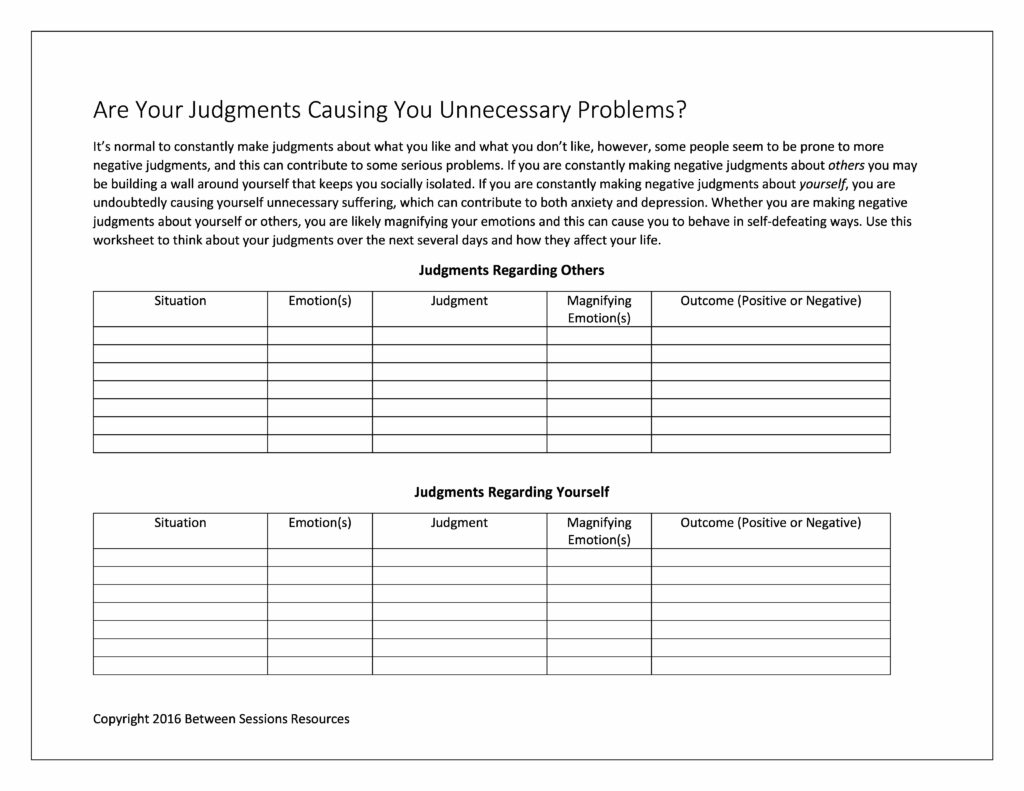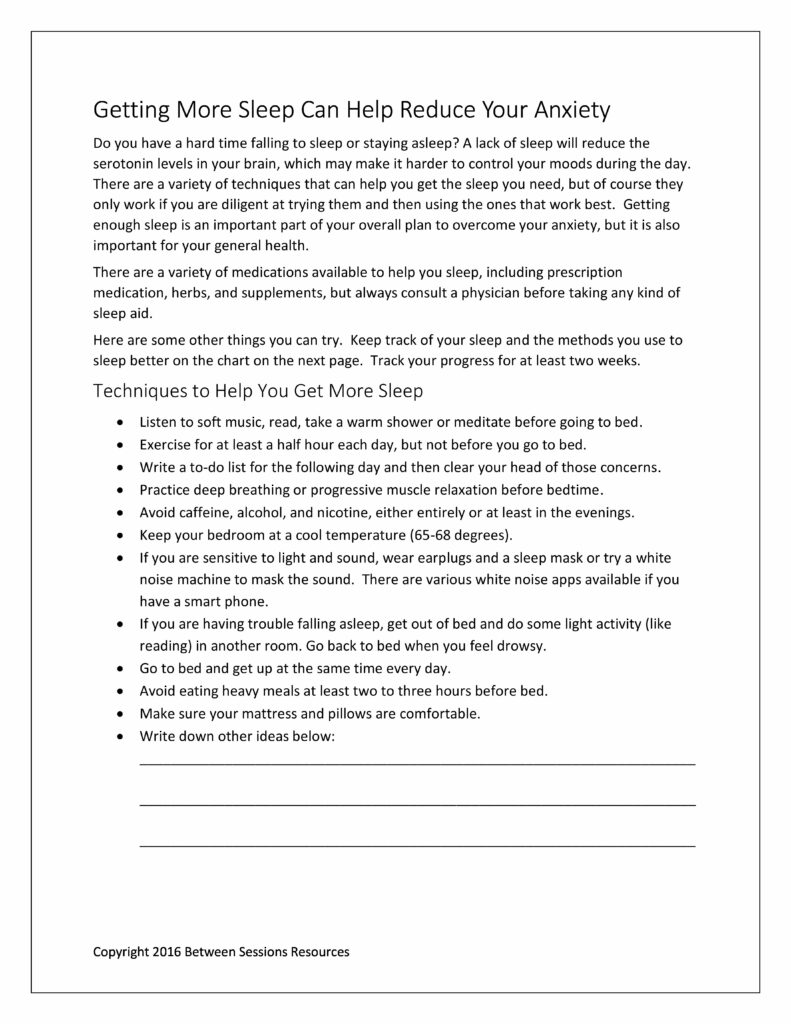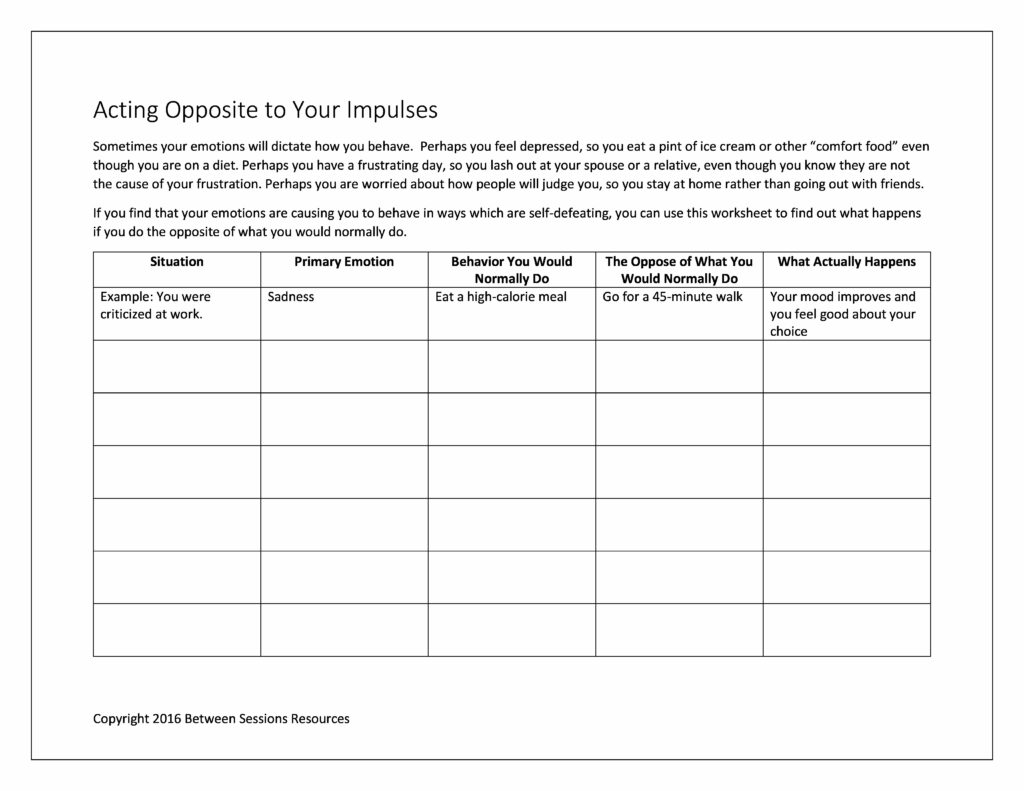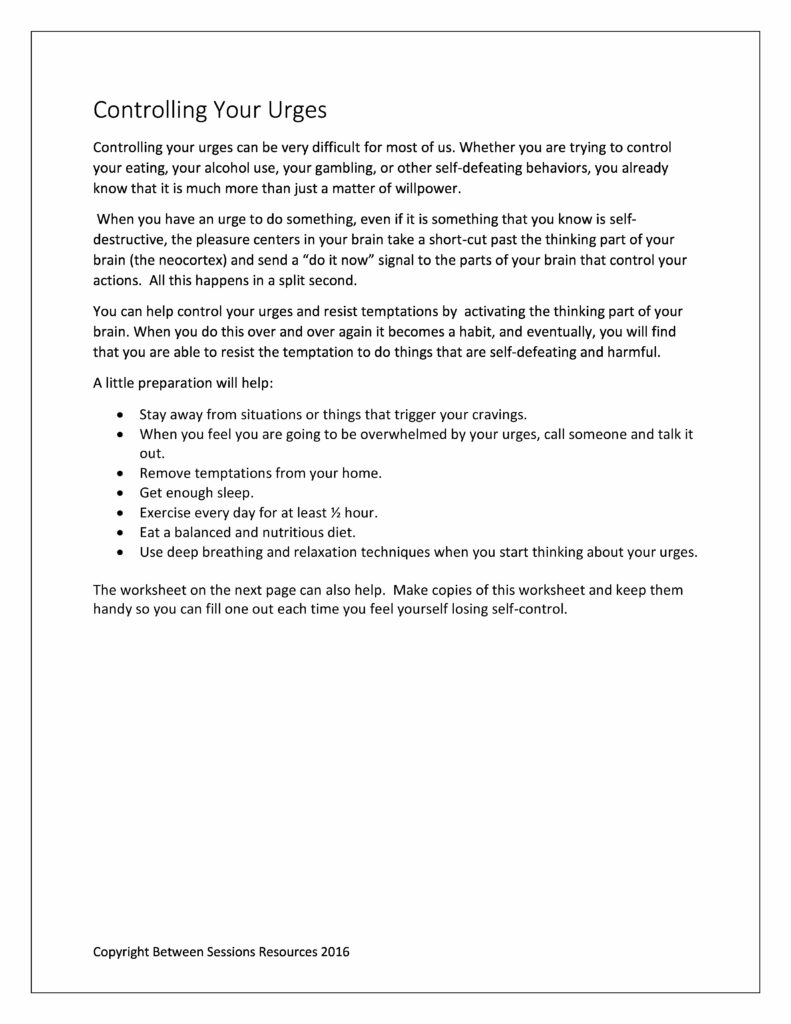Studies tell us that when professionals prescribe therapeutic homework, clients report significantly better outcomes. Our worksheets are derived from evidence-based therapies, and they are designed by experienced professionals. Use the navigation links on the left of this page to view tools in a specific category. Or use the search box at the top of this page to find the exact tool you are looking for.
To modify the tools, click the ‘Send to Client’ button by each tool to open the Psychology Forms Filler. You can then edit the tool as you see fit and either print it out or send it to a client to be filled out online. Click here for a tutorial on using the Psychology Forms Filler.
If you can’t find what you are looking for on this site, please let us know by
clicking here and our team of writers, graphic artists, and therapists will custom-design it for you.
This worksheet is designed to help people think about their negative judgements and how these affect their moods and behavior. The worksheet asks individuals to think about how they judge others as well as themselves.
This worksheet is designed to help people see how sleep problems can contribute to anxiety disorders and other mental health problems. It includes a list of techniques to help people get more sleep as well as a sleep diary. (wellness, health, lifestyle, 1016)
Diet, stress, and mood are all intertwined, so it’s important to consider what you’re putting in your body, not only for your physical health but also for your emotional wellbeing. This worksheet helps people record their daily food intake along with their moods. (anxiety, nutrition, wellness, 1016)
This form can be used by people to learn about the nature of their panic attacks. It should be filled in during the actual panic attacks. (panic attacks, anxiety, panic disorder, 1016)
If you find that your emotions are causing you to behave in ways which are self-defeating, you can use this worksheet to find out what happens if you do the opposite of what you would normally do. (DBT, CBT, Behavior Program, 1016)
This form is intended to be used by people trying to overcome recurring panic attacks. The form asks people to rate their average anxiety, depression, and worry about having panic attacks, each day. (CBT, panic disorder, 1016)
This set of worksheets is designed to help people with anxiety learn to deal with their associated physical discomfort. Many times people have panic attacks because the physical reactions they experience trigger more and more fear. By having people practice actually causing this discomfort, they become desensitized to the fear that it caused. (panic attacks, exposure, interoceptive, anxiety disorders, 0916)
This worksheet is designed to help people tolerate distressing thoughts. It asks people to visualize several “disgusting” images and be aware of them without judgment. Then it asks people to visualize a situation that typically causes them anxiety and rate how well they are at being mindful over a period of seven days. (mindfulness, panic attacks, anxiety, 0916)
This worksheet is designed to help individuals examine their irrational catastrophic thinking and their subsequent avoidant behavior. (panic attacks, anxiety, CBT, 0916)
This worksheet is designed to help people control their urges by activating the thinking part of their brains and make decisions that will interrupt the cycle of self-defeating behaviors. (addiction, self-control, impulse control, 0816)










